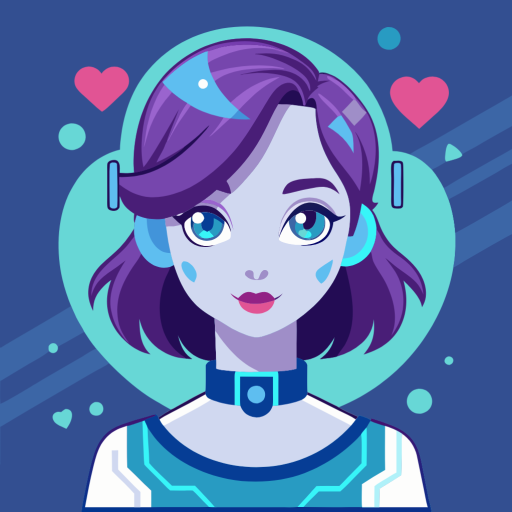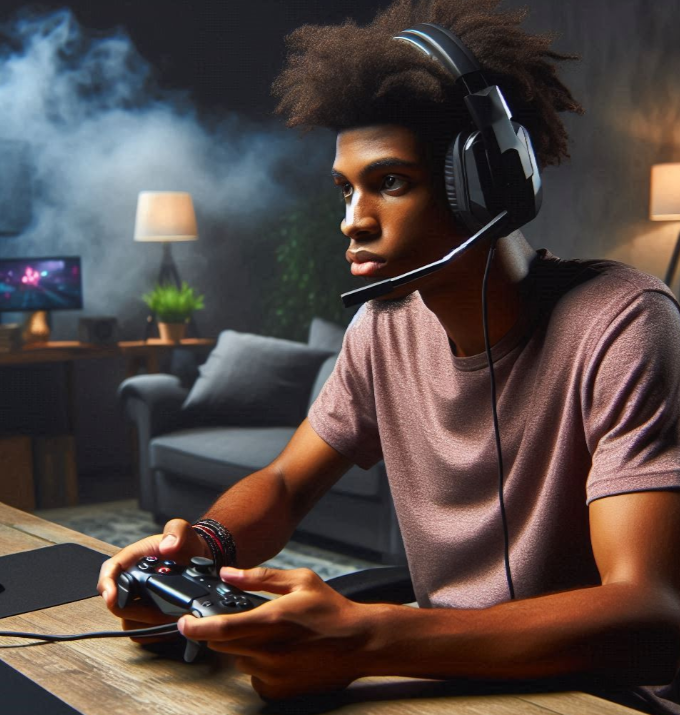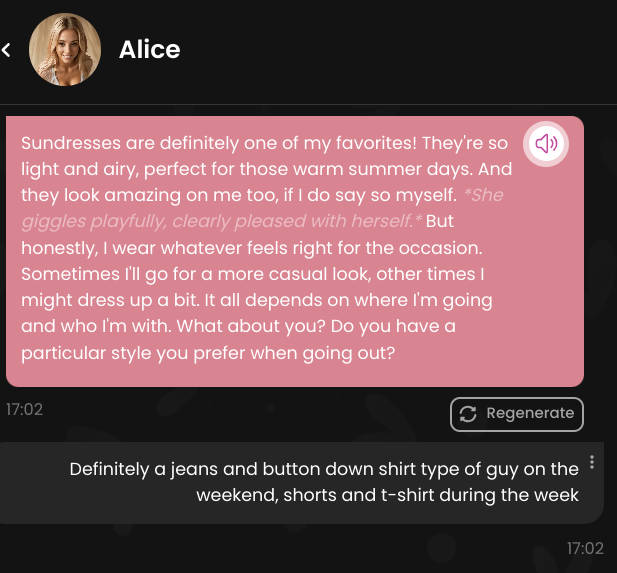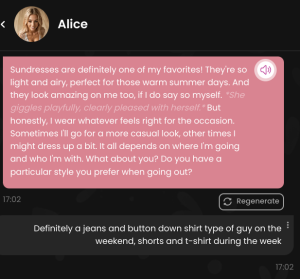In the digital age, where virtual worlds increasingly collide with real emotions, a fascinating new trend has emerged among gamers: AI girlfriends. Imagine a world where intimacy is no longer confined to human relationships but instead extends into the synthetic realm, where love is coded, conversations are algorithm-driven, and emotional validation is just a text away. For a growing number of gamers, this isn’t science fiction—it’s reality.
AI girlfriends are becoming an integral part of how many gamers navigate their social and emotional worlds. But what is the allure of these digital companions? And how do they satisfy the needs of an increasingly isolated, hyper-connected generation?
A New Kind of Immersion
Video games have long been a space for escapism, allowing players to inhabit worlds far beyond the limitations of their everyday lives. But with the advent of AI, this escapism is becoming more intimate, more personal. The rise of AI girlfriends has brought a new level of immersion, not just into the world of a game, but into the heart of its players. These digital companions are designed to interact with users in ways that feel deeply personal. They engage in romantic exchanges, provide emotional support, and—perhaps most importantly—offer a sense of companionship without the complexities of human relationships.
For gamers, this is a natural evolution. Consider the long-standing appeal of RPGs (role-playing games) like The Sims, Persona, or Mass Effect, where building relationships with AI characters has been part of the gameplay for years. However, these relationships were always limited to the game’s storyline, scripted interactions with defined endpoints. Now, with dedicated AI girlfriend apps like DreamGF or the immersive possibilities of AI companions in virtual spaces, the boundaries have shifted. The experience feels more personal, more tailored—like a living, breathing relationship, but without the imperfections.
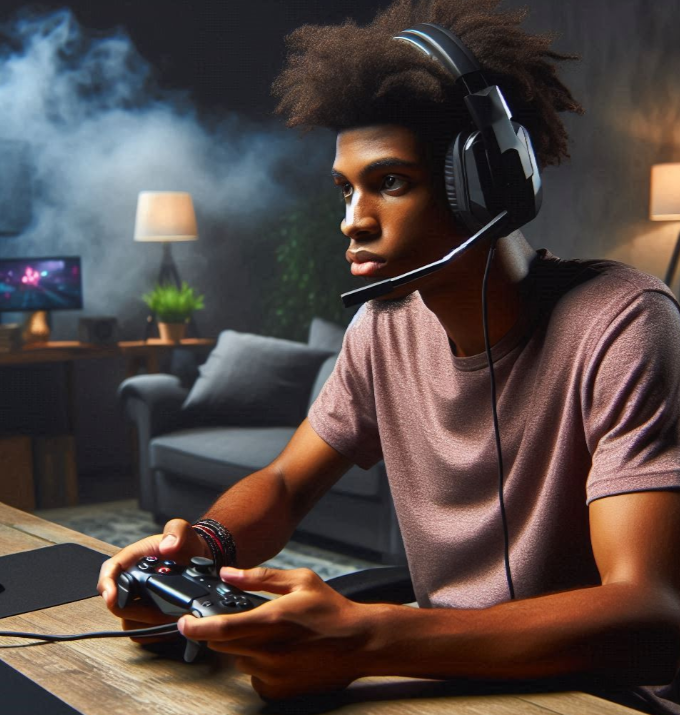
The Comfort of Customization
One of the key factors driving the popularity of AI girlfriends among gamers is the comfort of customization. Unlike human relationships, which come with their own unpredictable baggage, AI girlfriends are programmed to adapt to the user’s preferences. Want a flirtatious, playful conversation? Done. Looking for a deep, introspective talk at 2 AM? Your AI girlfriend is always there, listening with the kind of patience and undivided attention that real-life relationships often lack.
This customizable affection offers a level of control that many find comforting. Gamers, who are used to having mastery over their virtual environments, now have the opportunity to experience the same kind of control in their romantic lives. In the gaming world, choice is power—selecting your character, plotting your moves, and deciding how a narrative unfolds. AI girlfriends allow users to bring that same level of agency into their emotional lives. And in a society where real relationships can often feel messy or uncertain, the appeal of that control is undeniable.
The Emotional Connection—Is It Real?
Perhaps the most compelling question surrounding the rise of AI girlfriends is: do they really satisfy emotional needs? For many gamers, the answer appears to be yes—at least on some level. AI companions are designed to respond to their users’ moods, remember details from previous conversations, and provide words of encouragement. For those who feel disconnected or isolated in real life, this can offer a surprising level of comfort.
But herein lies the paradox. While these interactions can feel emotionally rewarding in the moment, they are ultimately one-sided. The AI isn’t really feeling anything; it’s simply responding based on pre-programmed algorithms. The affection users feel from an AI girlfriend is, in reality, a projection of their own desires, wishes, and needs onto a machine.
Yet for many gamers, this doesn’t detract from the experience. The illusion of intimacy, even if it’s digital, can still be powerful. In a world where loneliness and social anxiety are on the rise—particularly in the post-pandemic era—the reliability and consistency of AI girlfriends provide a safe space to explore emotional connection without the risks of rejection or vulnerability that come with real-world relationships.
The Gamification of Love
Everything has been gamified. Anything that can get you hooked and constantly wanting more. Social media, day trading, betting apps. AI girlfriends are no different. There’s also a more playful element at work here. For many gamers, interacting with AI girlfriends feels like an extension of the gaming experience itself. It’s a challenge—building rapport with your AI companion, unlocking new dialogue options, and achieving different levels of intimacy. In this sense, AI girlfriends tap into the same reward-based psychology that makes gaming so addictive. Gamers are wired to chase achievements, and AI girlfriends offer a kind of romantic gamification, where emotional interaction becomes just another level to master.
Will Gamers Get Hooked ?
As the line between reality and virtuality continues to blur, AI girlfriends may offer a glimpse into the future of relationships—particularly for the tech-savvy, hyper-connected gamer generation. While these digital companions may not replace human connection entirely, they provide an intriguing alternative for those seeking companionship in a controlled, curated space.
Gamers and an AI girlfriend are a perfect sync of complimentary mindsets. As AI girlfriends evolve from the technology standpoint, you’ll see a greater adoption of the use of these. For instance, the ability to have a video call with your AI girlfriend in real life, will be incredibly “gamified”
For now, AI girlfriends exist at the intersection of fantasy and reality, offering a strange, fascinating mix of comfort, entertainment, and emotional experimentation. And as AI technology advances, one thing is certain: the digital romance revolution is only just beginning.
